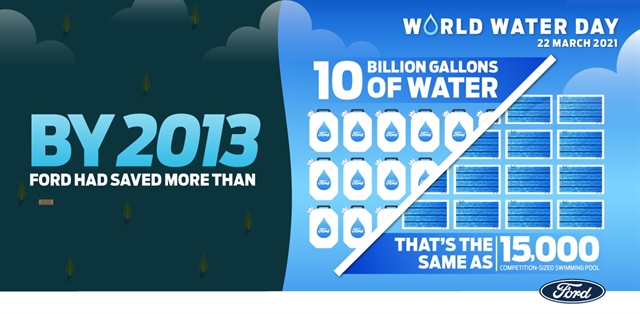US automaker Ford has said its long-term goal is to stop using freshwater in its manufacturing.

US automaker Ford has said its long-term goal is to stop using freshwater in its manufacturing.
It has made considerable progress towards ensuring that the only freshwater used at its facilities is for human consumption, it said.
Two decades ago the company set out to reduce its water usage per vehicle by 72 per cent, and said that by 2013 it had saved more than 10 billion gallons.
Ford’s Global technology and business centre in Chennai in south India, opened in 2019, got a Platinum green building rating at launch, the highest possible certification for sustainable buildings.
The certificate not only factors in water conservation but also sustainable design, architecture, and building material resources, energy conservation including use of renewable energy resources, indoor environment quality, and innovation and development.
At Ford’s Chennai vehicle assembly and engine plant, freshwater consumption per vehicle is down to 1.17cu.m from 7.3 m3 a decade ago.
Having identified an alternate source of grey water to treat for use in non-production activities, the smart water efficiency processes see it recycle almost 100 per cent of industrial wastewater for use in manufacturing.
While there are no regulations or restrictions on water use at Ford’s Vietnam plant, which draws from the Thai Binh River, a membrane bio reactor-based sewage treatment plant is being installed there, which, when it becomes fully operational in June, will help recycle water.
“Some of our Ford production plants around the globe are in what could be considered water-stressed areas, which means it is our responsibility to act consciously to protect one of our most vital resources,” Caro Hosier, director of sustainability, environment and safety engineering for Ford international markets group, said.” — VNS





